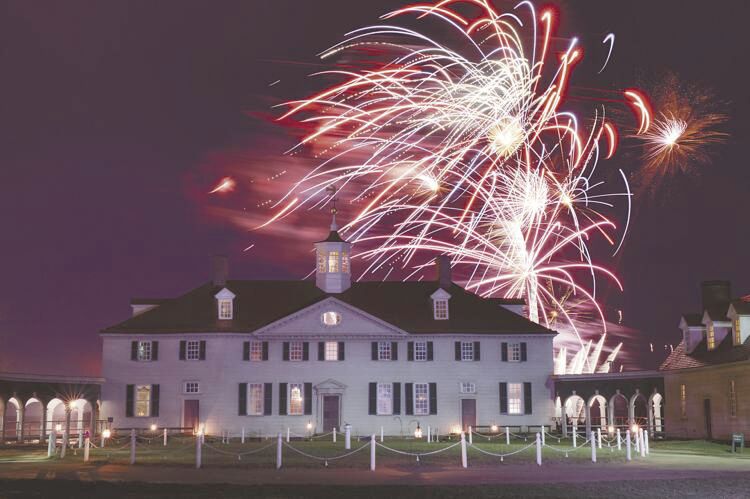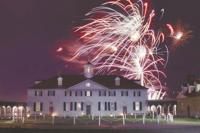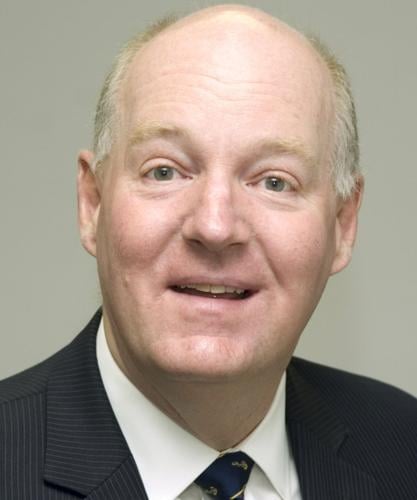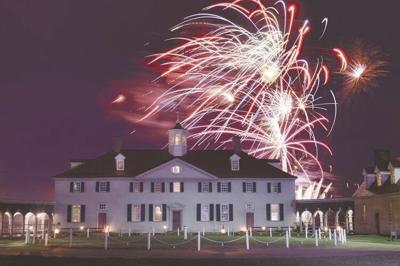When I read about gatherings of the Founding Fathers – whether a meeting of revolutionaries in Boston at the Black Horse Tavern or a sit-down meal at Monticello or Mount Vernon – I am often left wondering, given the historical descriptions of what they consumed, just how sauced were they?

David Kerr
I know this sounds disrespectful, but after reading about the drinking habits of our Founding Fathers, it seems a miracle that so many people who it seems had too much to drink accomplished so much.
Some accounts of the consumption are rather incredible. George Washington bought his Madeira by the “pond,” and he bought several at one time. A pond is roughly 150 gallons. Washington was also reported to drink a whole bottle of wine with dinner and then, without looking the slightest bit bothered, dance the night away
But Washington’s interest in alcoholic beverages extended beyond wine. He was an active distiller. His whiskey distillery at Mount Vernon is reported to have produced 11,000 gallons in one year. His mixture was 60% rye, 35% corn and 5% barley. It was perhaps the largest whiskey distillery of the era.
Thomas Jefferson was known for keeping meticulous household accounts and, in one year, recorded an incredible consumption of 1,203 bottles of wine at Monticello. However, as noted by Andrew Barr in “Drink: A Social History of America,” Jefferson said he didn’t consider himself a drinking man and claimed to have never had more than four glasses of wine with dinner. That also omits any reference to the traditional before dinner drink and after-dinner liquor.
This consumption wasn’t limited to leading men of society. Ben Franklin, writing about his early days as a pressman – as documented in Brian Simpson’s book, “Benjamin Franklin” – said his fellow printers drank at least four or five pints of beer a day, starting with a pint before breakfast. Franklin was the exception. He was an ambitious young man, and he was convinced that too much alcohol dulled the mind. So he opted for tea or water.
According to “Drinking in America,” by Mark Edward Lender and James Kirby Martin, the average per-capita consumption of alcohol in the colonies was about six to seven gallons a year. Today, according to the World Health Organization, that figure in the United States is about 2.3 gallons. I still think that’s a lot of alcohol.
However, before the revolution, a colonist’s choice when it came to alcoholic beverages was limited. Native grapes, called “fox grapes,” had a relatively low sugar content and didn’t make the best wine.
Therefore, most wine was imported, making it too expensive for the average colonist. Beer was available in good supply, as was cider fermented from apples, peaches and pears.
As for hard liquor in Colonial America, rum was the drink of choice. Rum is made from molasses, which was shipped to the colonies from the Caribbean to be distilled. But after the start of the revolution, when the British turned off the spigot from the islands, whiskey started to take its place.
However, there were some reasons behind this rather amazing consumption of alcohol. Perhaps the most serious was the quality of the water. All sorts of diseases were transmitted in contaminated water. However, the alcohol in wine, beer and spirits killed the contagions, making them far safer than water.
And then there was a medicinal function. Along with a host of purges and elixirs, doctors – or what passed for doctors in that era – when faced with aches, pains and discomfort, and, yes, even pregnancy, recommended a drink of rum or whiskey.
This intense passion for alcohol continued well into the 19th century. And while we never lost our desire for alcohol, consumption dropped off considerably after the Civil War. The presence of better water, non-alcoholic soft drinks and the growing religious fervor against drinking dampened our once-mighty thirst.
It’s easy to be a bit too tough on the founders and their hard-drinking ways. Maybe it’s wise to take a more generous view. After all, they developed the basic ideals of our republic, raised an army, wrote the Declaration of Independence, won the war for independence and created a government that works to this day.
Given all that, if I were back in 1776 and sitting at a table with these great men, I think I would just say, “I’ll have what George and Tom are having.”
David Kerr is an adjunct professor of political science at Virginia Commonwealth University and has worked on Capitol Hill and for various federal agencies for many years.






(1) comment
Cheers! Good to know all our breweries, distilleries, and wineries are just continuing a long and illustrious Virginia history of getting government leaders sauced. Glad many of us citizens can now afford to partake as well. Cheers again, Virginia!
Welcome to the discussion.
Log In
Keep it Clean. Please avoid obscene, vulgar, lewd, racist or sexually-oriented language.
PLEASE TURN OFF YOUR CAPS LOCK.
Don't Threaten. Threats of harming another person will not be tolerated.
Be Truthful. Don't knowingly lie about anyone or anything.
Be Nice. No racism, sexism or any sort of -ism that is degrading to another person.
Be Proactive. Use the 'Report' link on each comment to let us know of abusive posts.
Share with Us. We'd love to hear eyewitness accounts, the history behind an article.